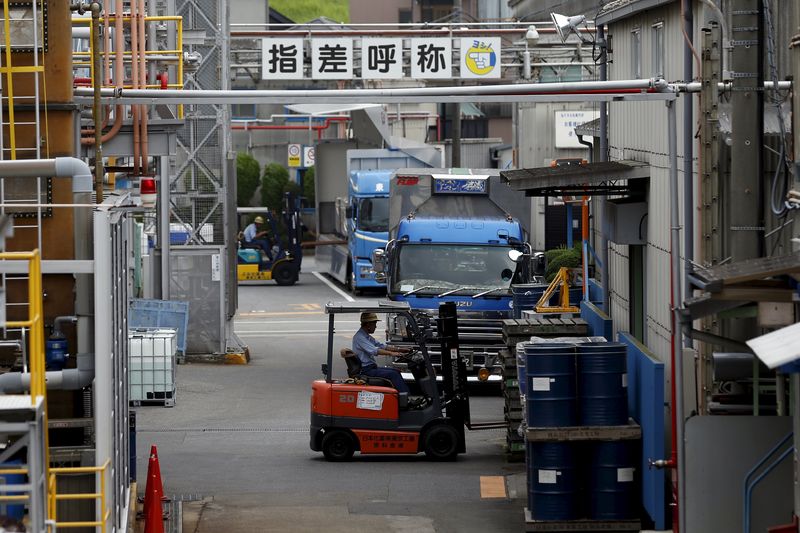By Ambar Warrick
Investing.com-- Japan’s trade deficit shrank less than expected in November, data showed on Thursday, as growth in exports did little to offset resilience in imports due to a weakening yen and high commodity prices.
The country’s trade balance for November was a deficit of ¥2.03 trillion ($1= ¥135.30), compared to a deficit of ¥2.17T in the prior month, data from the Ministry of Finance showed.
But the figure was much higher than forecasts for a deficit of ¥1.68T.
Exports grew 20% during the month from last year, slightly more than expected, thanks to strong shipments of industrial machinery and automobiles. The reading indicated that Japanese businesses were still seeing some strength in overseas demand despite increasing concerns over a global recession.
But strong exports were largely offset by higher-than-expected growth in imports, which grew 30.3% in November against expectations of 27%. Still, relative stability in commodity markets saw growth in imports slow sharply from the 53.5% jump seen in October.
But Thursday’s data shows that the Japanese economy still faces unfavorable trends in foreign trade, as a looming energy crunch in the country keeps its fuel imports elevated.
Imports of mineral fuels jumped nearly 61% during the month, with petroleum imports up 69.7%, while coal shipments more than doubled in value to ¥795 billion.
A bulk of this jump comes from Japan switching to different fuel suppliers this year, as it dropped regular provider Russia in opposition to the country’s invasion of Ukraine.
This saw Japan’s imports from Australia - a key provider of minerals to the country - jump sharply in November. But China remained Japan’s biggest trading partner.
A weakening yen is the biggest headwind to Japan’s trading activity this year, given that it made imports by the country far more expensive. While the currency recovered sharply in the past two months, it was still trading down nearly 18% for the year.
Weakness in the yen is driven largely by a widening gap between local and U.S. interest rates, which is in part due to the Bank of Japan’s reluctance to tighten monetary policy.
But with inflation in the country surging to a 40-year high, markets have begun speculating whether the central bank will change its stance in the near future.
